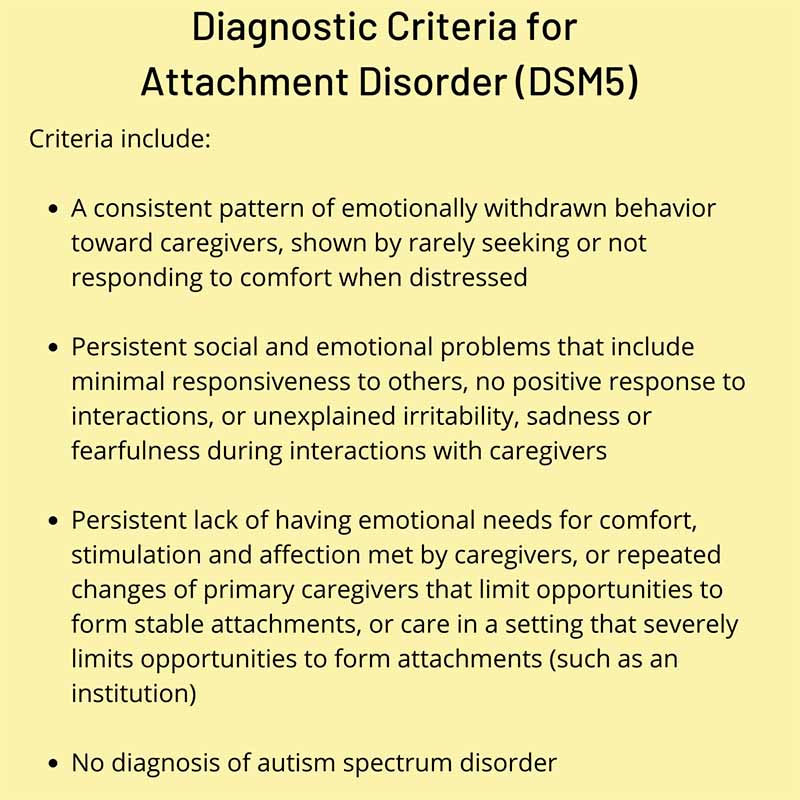At Optimal Edu Options, our focus is on finding the best educational options that match the needs of the child. Parents and caregivers who come to us may be the biological parents, adoptive parents, or foster parents for children facing various challenges that may include mental health disorders or learning disabilities. Attachment disorder is a complicated diagnosis that can leave families at a loss on where and how to help.
As a board member of ATTACh (Association for Training on Trauma and Attachment in Children), our founder Gail Curran has focused extra training on working with children with attachment disorder and developmental trauma. She collaborates with several services to match a child to a provider where it is best suited to the child and family’s needs. Our blog this month describes how attachment disorder affects children.
ATTACh is a national and international coalition of parents, professionals, and caregivers to increase awareness and understanding about attachment and its critical importance in human development.
In the fall, Gail will be presenting with a former client and her mom at the ATTACh National Conference in Minneapolis. The session Fight and Flight: An Adoptee’s Journey to Healing will feature a young woman and her family’s trials and tribulations from her adoption from a Russian orphanage at six months of age to mental health and physical injury. The live conference will take place from Sept. 30 to Oct. 2.
What is attachment disorder?
Attachment disorder is a behavioral or mood disorder that affects a person’s ability to form and maintain close relationships. While directly affecting the individual suffering from the disorder, attachment disorder also can make life at home complicated and painful. According to ATTACh, attachment trauma occurs when there is a significant disruption in the bonding between a baby or child with the primary caregiver. It can be due to a traumatic experience such as divorce, serious illness, disruption in the home due to catastrophe or war, or death.
There are two kinds of attachment disorders: reactive attachment disorder and disinhibited social engagement disorder. Both present unique challenges and require different types of care.
Reactive Attachment Disorder
RAD typically stems from early childhood neglect or maltreatment. It is characterized by a lack of emotion, particularly during social interactions, difficulty calming down when upset or stressed, and low levels of social interaction with others. Mood issues such as anger, unhappiness, sadness, irritation, or fear when engaging in everyday tasks are also common.
The disorder does not go away on its own, and it can persist into adulthood if not treated effectively. Adults living with RAD sometimes demonstrate:
- A resistance to affection
- Low levels of trust
- A negative self-image
- Difficulty reading emotions in others
- Impulsivity
- Anger issues
- Detachment
Disinhibited Social Engagement Disorder
DSED is sometimes a response to social neglect or a lack of consistent caregiver attachment during the first two years of life. Children with DSED usually exhibit hyperactivity, extreme social ability, minimal social boundaries, and readiness to engage and approach strangers.
Just like RAD, children who do not receive adequate treatment can live with DSED into adulthood. Common symptoms of the disorder in adults include:
- Hyperactivity
- A lack of social boundaries
- A general lack of inhibition
- The extreme trust of strangers or acquaintances
Treatment and Placement Options
Helping a child through healing will require therapeutic intervention for both the child and current caregivers. Strategies to help your child learn improved relationship skills and trust requires nurturing, responsive caring, consistent, and stable support from family and educators. A positive, interactive environment where the child feels safe and ensuring your child’s environment is stable and meets all medical and safety requirements.
Therapy should be provided together and separately. Often special education services are necessary to help the child academically, and parent training is recommended to support the family navigate helping their child effectively. Our team has access to multiple resources for therapeutic and educational options to assist you and your child as you start on the path to healing.
Optimal Edu Options is an Arizona-based education consulting agency whose experienced team has the expertise necessary to effectively support your family and child in finding the best educational and therapeutic options to meet your family’s needs. Reach out to us today for more information about our services and how they can help. We offer a free 30-minute consultation. Email gail@optimaleduoptions.com or call us at (602) 904-1282.

